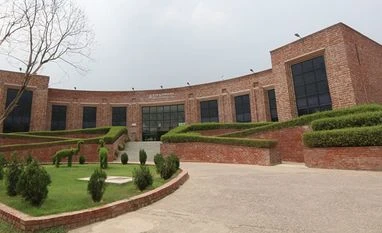Recently I was witness to a discussion amongst some members of the JNU faculty. They were discussing a directive from the university’s administration, now a few months old, that henceforth marking attendance would be compulsory for everyone, students as well as teachers.
There was a lot indignation and even anger. The general refrain was ‘how dare they’ and the inevitable conclusion was that this was a BJP/RSS plot to ‘destroy’ the university.
At one point I asked whether they were genuinely satisfied that they were giving their 100 per cent. All said yes.
So, foolishly, I asked how they were evaluated. That brought down a storm on my head. I withdrew, retired hurt.
But it is worth noting that the JNU faculty makes the classic error of logical induction: because some members of the faculty are hardworking, all must be hardworking. Maybe they are, too. But how do we check? What about the other universities?
Viral infection
Actually, this problem is not confined to the universities alone. It applies to the entire government and its various arms like the whole public sector.
I am reminded, in this context, of what members of various UPSC boards have been saying. If you hear even a tenth of the stories, you will understand why our governance has become so poor.
The government sector as a whole is employing far too many persons who not only lack the skills to do the job but also view their jobs as an instrument of power rather than public service. Government employment has become a means not just to upward social mobility, which is good, but also a way to exercise control and take bribes.
This malady, for long confined to the lower echelons, has now affected the Class One Services also. Even they have been affected by our foolish recruitment policies which devalue merit.
Indeed, if you dig deeper, however, it is not just the recruitment policies that are to blame. The very pools from which everyone recruits, whether the government or the private sector, has been infected with low quality.
In the case of education, it is not just the genuine degree holders whose quality is suspect. Fake qualifications also abound, as we recently saw in Delhi University, which was once a premier institution.
Which brings me to the issue I started with, that of attendance for teachers in the universities: will it ensure quality? I think so. Even if it doesn’t lead to massive improvements, the change will be positive.
This is because on top of faculty recruitment being flawed for a variety of reasons, the quality of their inputs is also below par. That is, not only have we been recruiting low quality academic staff in schools and colleges, we have not been bothering to ensure that they turn up and teach.
Thus, while we want everyone else to be accountable, so far, we have not insisted on such accountability from teachers. They have been getting away scot free with poor quality instruction or often none at all.
In any other country these people would have been sacked or at least severely disciplined. In India we have done the opposite by raising the retirement age from 60 to 65 so that they can go on for five years more because we are like that only.
Conduct rules
The UGC has also told the universities that their teaching staff will be covered by the conduct rules that apply to civil servants. This means they cannot criticise the government on the grounds that no one should bite the hand that feeds him or her.
The academic community has been shocked out of its wits by this because it never thought of itself as civil servants. But as long the members of that community receive their salaries and other benefits from the government, there is some justification for the UGC directive.
Yet, if you don’t allow teachers to be critical, who will provide the critical analysis of policies? Can you tell thinkers to stop thinking critically and only think nice things about what the government does? Are we the USSR or China?
Indeed, does the fact that it is the government that pays you constitute sufficient reason to curb the freedom of expression?
There is only one way to find out: ask the Supreme Court.
The writer tweets @tca_tca
Unlock 30+ premium stories daily hand-picked by our editors, across devices on browser and app.
Pick your 5 favourite companies, get a daily email with all news updates on them.
Full access to our intuitive epaper - clip, save, share articles from any device; newspaper archives from 2006.
Preferential invites to Business Standard events.
Curated newsletters on markets, personal finance, policy & politics, start-ups, technology, and more.
)